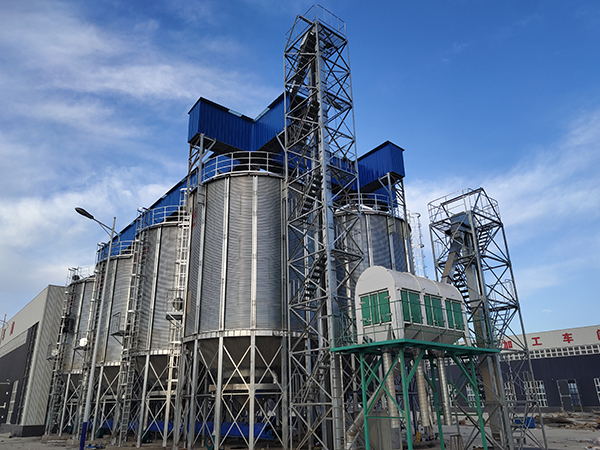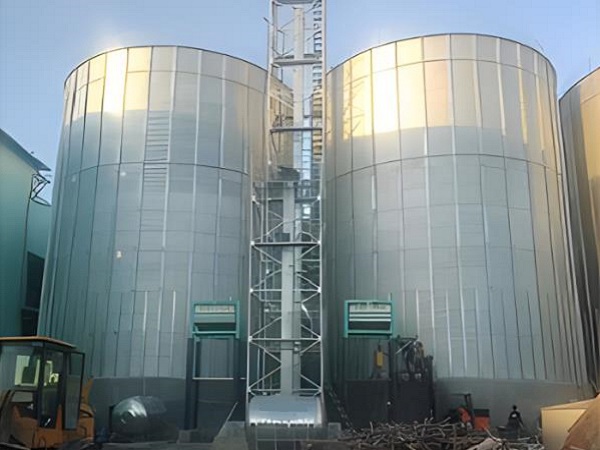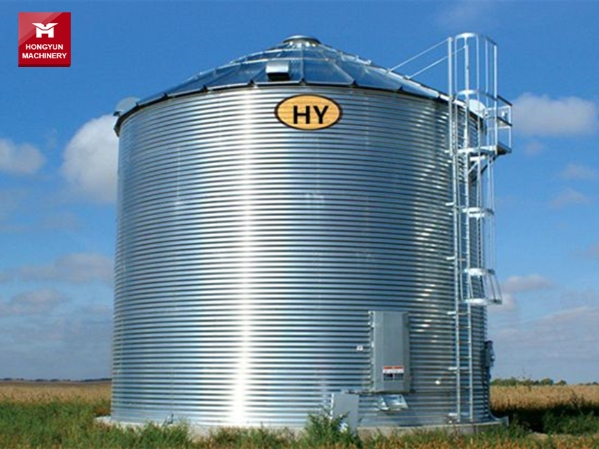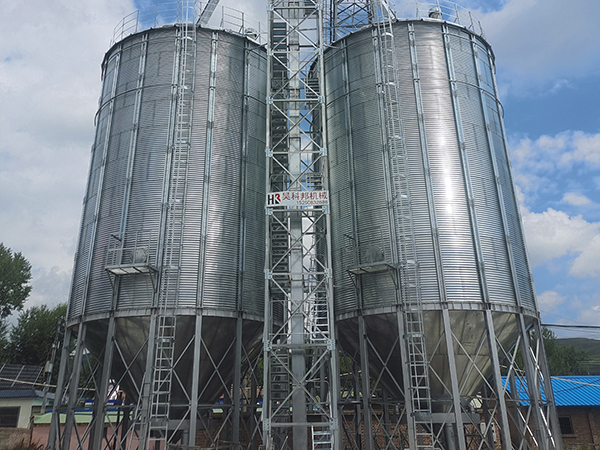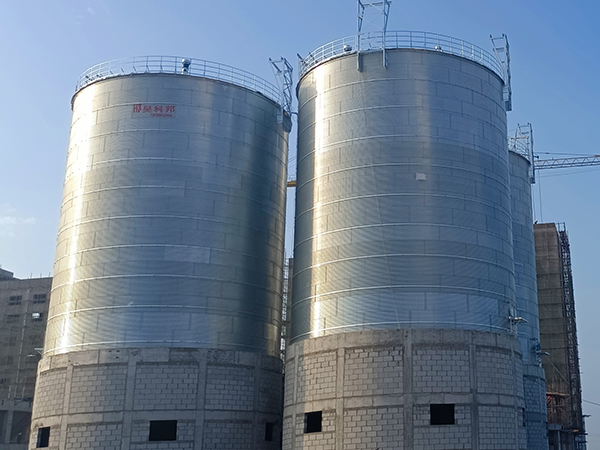Peanut storage: choosing between cone bottom silo and steel silo
Cone bottom silos offer simple, efficient peanut storage with intelligent systems, while steel silos provide durable, reliable solutions. Both types enhance modern agricultural practices by ensuring efficient, safe peanut storage.
- Barley grain bin company in Tanzania
- rice grain bin factory in Rwanda
- Paddy grain bin supplier in Guinea
- Wheat Cone-Bottom Silo Franchise in Thailand
- Wheat cone bottom silo procurement in Thailand
- Wholesale Wheat Cone-Bottom Silo in Malaysia
- Manufacturers of Wheat Cone-Bottom Silo in Malaysia
- Wheat Cone-Bottomed Silo Suppliers in Uganda
- Cone-Bottom Wheat Silo Sales in Uganda
- Wheat cone bottom silo price in Uganda
- Soybean meal grain bin sale in Guinea
- Corn grain bin price in Libya
As an essential aspect of agricultural production, the storage of peanuts has always been a matter of concern. In modern agricultural practices, selecting appropriate storage facilities is crucial. Cone bottom silos and steel silos, as two common storage equipment, each possess unique characteristics and advantages. How are they applied in peanut storage? This article will delve into the topic.
Cone Bottom Silos: Simple and Efficient
First, let’s understand the application of cone bottom silos in peanut storage. Cone bottom silos are widely favored for their simplicity and efficiency.
Superior Structural Design
Cone bottom silos feature a conical bottom design, allowing peanuts to flow out automatically under gravity, greatly simplifying the loading and unloading process and improving efficiency.
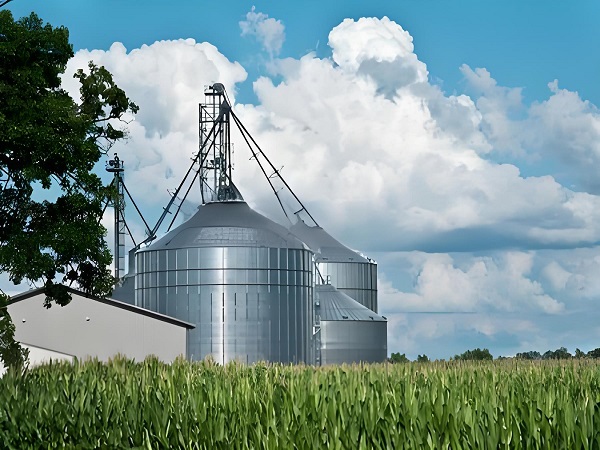
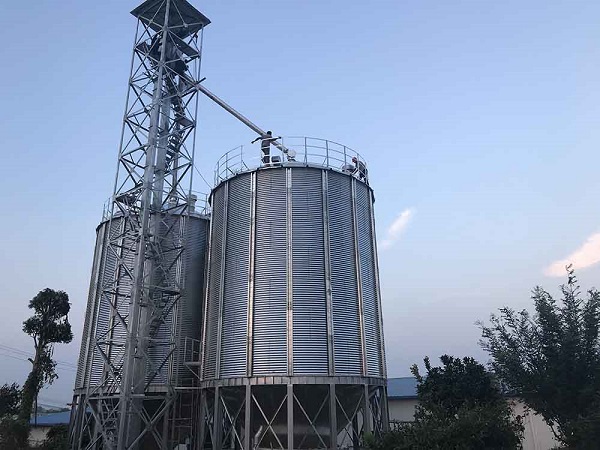
Flexible Adaptability
The design of cone bottom silos is flexible and suitable for various sites and environments. They are particularly suitable for users who lease sites because they can be quickly modified and dismantled, adjusted as needed, thus avoiding the hassle caused by changes in site conditions.
Intelligent Supporting Systems
Cone bottom silos are equipped with a range of intelligent supporting systems, including raw grain cleaning systems, dust removal devices, lifting and conveying systems, temperature and humidity monitoring, ventilation systems, etc. The integration of these systems makes the process of storing peanuts more automated and intelligent, improving storage efficiency and safety.
Steel Silos: Sturdy and Reliable
Compared with cone bottom silos, steel silos play an irreplaceable role in peanut storage due to their sturdiness and reliability.
Durability and Maintainability
Steel silos are manufactured using high-quality hot-dip galvanized plates, offering excellent corrosion resistance and durability to maintain stable performance over long-term use. All components are standardized, and damaged parts can be easily replaced, reducing maintenance costs.
Flexible Size Selection
The diameter of steel silos can be selected between 2.7 to 32 meters, providing a wide range of storage capacity options. This flexibility in size selection enables steel silos to meet the storage needs of different scales of peanut storage.
Temperature Monitoring and Safety Alerts
Steel silos are equipped with a temperature monitoring system that issues timely warning notifications to ensure peanuts are stored in suitable conditions, preventing spoilage and losses.
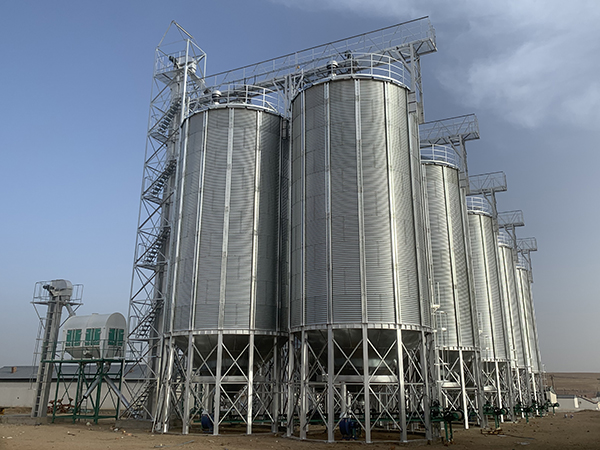
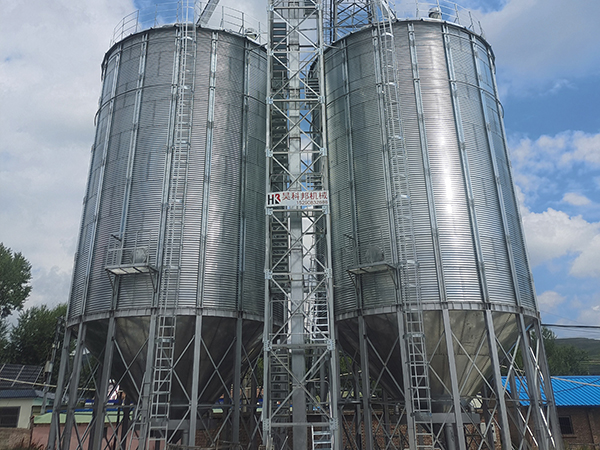
Integrated Selection for Scientific Storage
When selecting the appropriate storage facility, it is necessary to comprehensively consider the characteristics of cone bottom silos and steel silos as well as the actual requirements. For scenarios requiring flexible mobility and intelligent management, cone bottom silos may be more suitable, while for those pursuing stability, reliability, and long-term use, steel silos are an ideal choice.
Whether it’s cone bottom silos or steel silos, they both provide reliable solutions for peanut storage. In modern agricultural production, scientific storage not only ensures food safety but also improves production efficiency, thereby ensuring the sustainable development of the agricultural industry.

